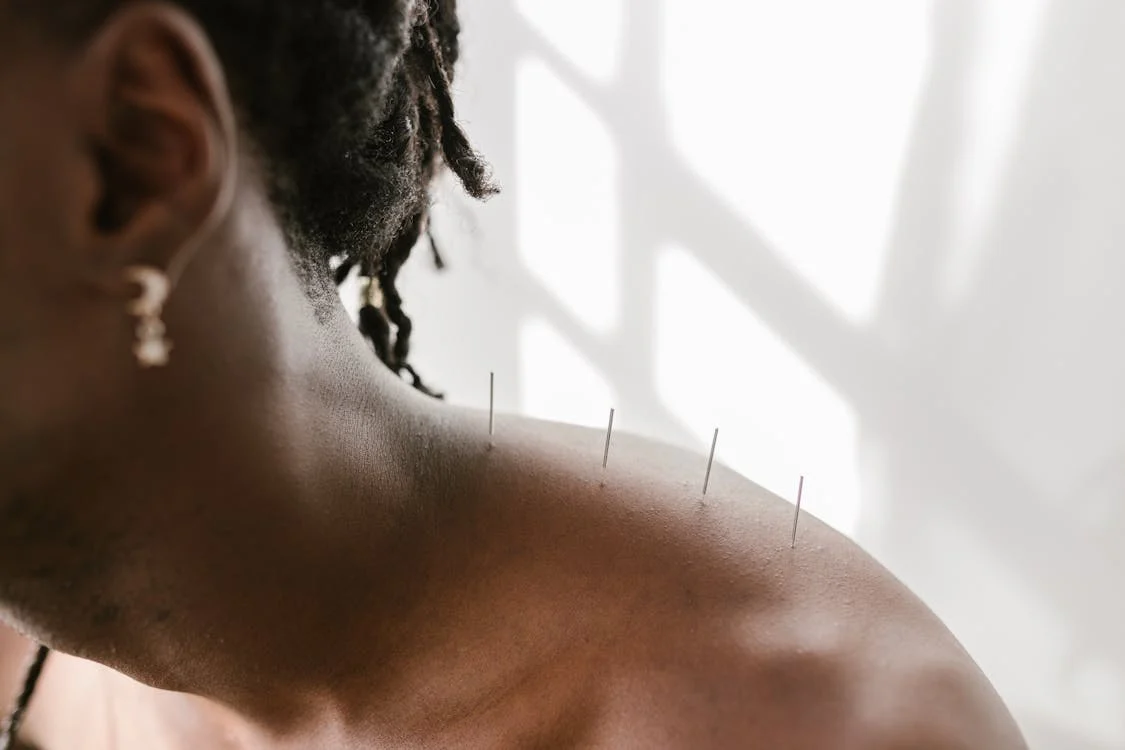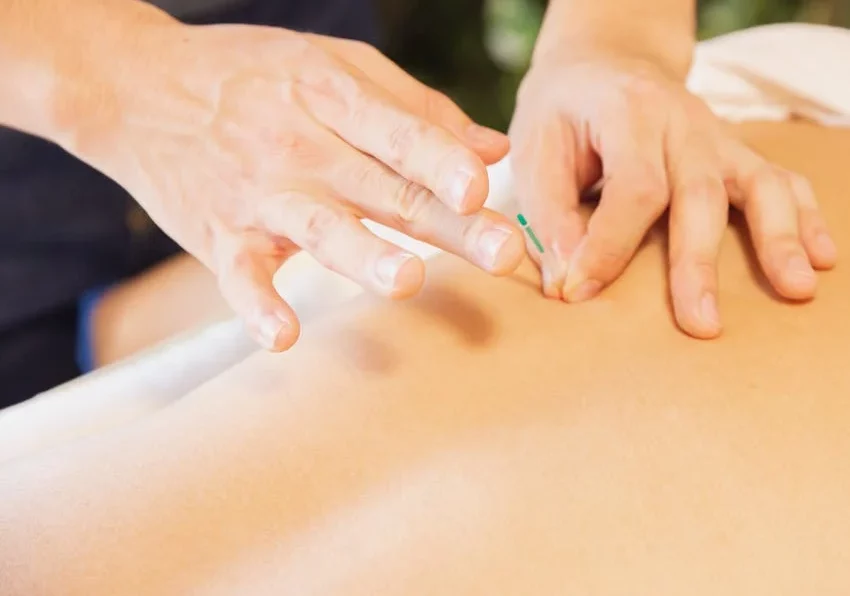What can TCM Acupuncture Help With?
Our experienced practitioners use TCM acupuncture to address a diverse array of health concerns. It can be particularly effective for:

How Can TCM Acupuncture Help You?
Our experienced practitioners use TCM acupuncture to address a diverse array of health concerns. It can be particularly effective for:
Pain Management & Neurological Conditions
Find effective relief from various types of pain and neurological symptoms. We commonly use acupuncture to help manage:
- General Pain Relief: Addressing aches and discomfort throughout the body.
- Musculoskeletal Pain: Including back pain, neck pain, shoulder issues, sciatica, plantar fasciitis and arthritis.
- Neuropathic Pain: Offering support for nerve-related pain conditions.
- Headaches & Migraines: Reducing the frequency and intensity of episodes.
- Trigeminal Neuralgia: Assisting in the management of facial pain.
- Bell’s Palsy: Supporting facial muscle recovery.
- Post-Stroke Rehabilitation: Aiding recovery and function alongside conventional therapies.
Women's Health & Fertility
Supporting women through various life stages and health challenges:
- Fertility Support: Assisting individuals or couples on their conception journey.
- Menstrual Regulation: Helping with irregular cycles.
- Period Pain (Dysmenorrhoea): Easing discomfort associated with menstruation.
- PCOS Support: Managing symptoms associated with Polycystic Ovary Syndrome.
- Endometriosis & Fibroids: Providing supportive care for symptom management.
- Menopause Regulation: Helping to ease symptoms like hot flushes and mood changes.
Stress, Sleep & Emotional Wellbeing
Promote relaxation, calm your nervous system, and improve emotional balance:
- Stress Relief: Helping your body cope with the demands of modern life.
- Anxiety Management: Supporting a calmer state of mind.
- PTSD Support: Assisting nervous system regulation as part of a wider support plan.
- Insomnia: Improving sleep quality and patterns.
Chronic Conditions & Recovery
Providing support for managing long-term health challenges and improving vitality:
- Chronic Fatigue Syndrome (CFS/ME): Helping to manage energy levels and associated symptoms.
- Fibromyalgia: Assisting in the management of widespread pain and fatigue.
- Long COVID & Post-Viral Fatigue: Supporting recovery from lingering viral symptoms.
- Diabetes Support: Many patients with Type 2 diabetes notice positive effects on blood sugar regulation during regular treatment for other complaints.
- Gastrointestinal Disorders: Including support for IBS symptoms like bloating and discomfort.
- Cancer Support: Complementary therapy aimed at managing treatment side effects (like nausea) and improving quality of life during or after cancer treatment.
Other Specific Applications
- Acne: Utilising facial acupuncture techniques.
- Quit Smoking Support: Employing specific protocols like NADA to aid cessation.
Learn more about Traditional Chinese Medicine Acupuncture (TCM)
Learn more about the differences with dry needling, the benefits and when we use these techniques.
TCM Acupuncture is a key component of Traditional Chinese Medicine, practised for thousands of years.
It involves inserting extremely fine, sterile needles into specific points on the body (acupoints).
The aim is to rebalance the body’s vital energy (Qi), stimulate its natural healing processes, alleviate pain, and address the underlying causes of various health conditions, rather than just masking symptoms.
Most people find acupuncture treatment surprisingly comfortable. The needles used are extremely fine, much thinner than injection needles.
You might feel a tiny prick upon insertion, followed by potential sensations like a mild tingling, warmth, heaviness, or a dull ache around the needle site.
This is known as ‘De Qi’ and is considered a positive sign that the treatment is working.
Any discomfort is usually minimal and brief. Our practitioners are skilled at ensuring your comfort throughout the session.
Yes, when performed by a fully qualified and trained practitioner, TCM acupuncture is very safe.
We strictly adhere to safety guidelines, using pre-sterilised, single-use, disposable needles for every treatment to eliminate the risk of infection.
Minor side effects are uncommon but may include slight bruising or pinpoint bleeding at the needle site, or temporary drowsiness post-treatment.
It’s important to inform your practitioner about your full medical history, including pregnancy, bleeding disorders, or if you have a pacemaker, before treatment begins.
Your first appointment will typically last around 60 minutes.
This includes a detailed consultation where we’ll discuss your main health concerns, medical history, lifestyle, and goals for treatment.
This helps us understand the root cause of your issues from a TCM perspective (which may involve looking at your tongue and feeling your pulse).
Afterwards, you’ll relax on a treatment couch while the needles are gently inserted.
You’ll rest with the needles in place for about 20-30 minutes before they are removed.
This varies greatly depending on your individual condition, how long you’ve had it (acute vs. chronic), and how your body responds to treatment.
We will discuss a recommended treatment plan during your initial consultation. Often, a course of 4-6 weekly or fortnightly sessions is suggested initially to see significant benefits, after which we will reassess.
Some people find regular maintenance sessions helpful for ongoing well-being or managing chronic conditions.
Loose-fitting, comfortable clothing is best. Many commonly used acupuncture points are on the arms (below the elbow) and legs (below the knee), so clothing that allows easy access to these areas is helpful.
Depending on your treatment plan, other areas like your back or abdomen might be needed. You will always be kept warm and appropriately covered with towels to ensure your privacy and comfort.
Yes, absolutely. As an integrated practice here at Body Unity, we often find that osteopathy and TCM acupuncture complement each other very well.
Combining these therapies can offer a more comprehensive approach to managing pain, improving function, and enhancing overall health.
Your practitioner can advise on the best way to schedule and integrate these treatments for your specific needs.
Yes, the practitioners offering TCM Acupuncture at our clinic are fully qualified, insured, and adhere to strict codes of safe practice and professional conduct established by relevant professional bodies.
They have undertaken specific, in-depth training in Traditional Chinese Medicine theory and acupuncture techniques.
Please feel free to ask about their specific qualifications.
Experience the Benefits of TCM Acupuncture Now
Book a dedicated appointment with our fully qualified TCM Acupuncturists.

